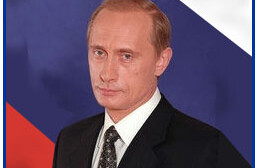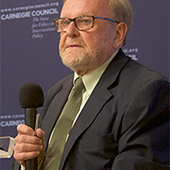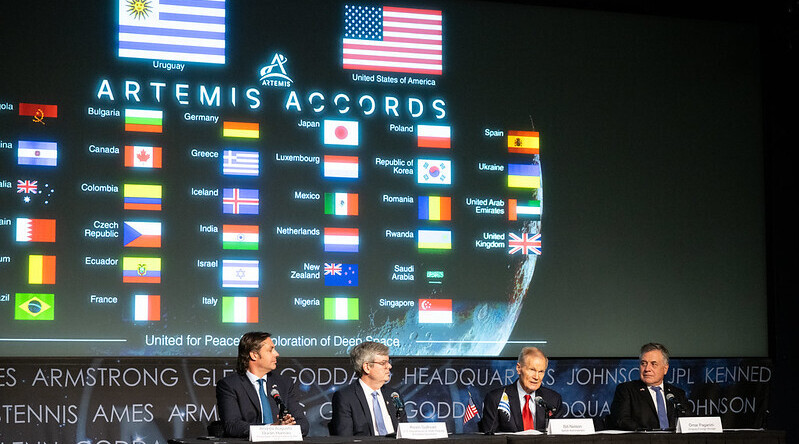This article was first published on The Christian Science Monitor website on November 15, and is reposted here with kind permission. It will also appear in the weekly print edition of the CSM.
Vladimir Putin's announcement that he will run for president in 2012 has evoked mass breast beating in the Western media. The indignant response has ranged from direct attacks on Mr. Putin himself to dire assessments of Russia's future prospects under a renewed Putin presidency.
But let's look at some of the most serious accusations leveled at Putin and his Russia. In the right light, we see Russia and Putin have taken some undue heat.
First, critics take aim at Putin for the state of the Russian economy. Many have noted that corruption in Russia is rife and wealth is concentrated in the hands of a privileged few. (True, but data show that income inequality has also risen in the United States and United Kingdom over the past 20 years). Corruption is indeed a problem in Russia, and may continue to inhibit broad economic growth. But let's remember what Putin inherited on becoming president in 2000—the disastrous legacy of the Yeltsin era.
Under Boris Yeltsin, Russia opened the door to Western economists and followed their "shock therapy" prescription for economic ills, an austerity program designed to control inflation by raising interest rates and taxes, and inflicting deep cuts on state social programs. As a result, Russia's GDP fell by half, unemployment soared, and the measures failed to curb inflation. Indeed, hyperinflation wiped out the savings of millions of ordinary Russians.
Another view of the Russian economy is voiced by Donald Kendall, former CEO and cofounder of PepsiCo:
"I have been involved with business in the Soviet Union and Russia since 1959, and Putin has provided the best leadership the country has ever had. PepsiCo is very happy to have Russia as its biggest international market. It is planning to put $1 billion into Russia over the next two years, bringing a ten-year total to $10 billion."
Mr. Kendall's favorable account of international investment is echoed by that of GE, Cisco, Nokia, Unilever, and Siemens, among others.
Second, there is the portrait of Putin as the arch-authoritarian. To be sure, Putin is, to use the celebrated phrase of my friend, the political scientist Michael Mandelbaum, no "Scandinavian democrat." But again, we should hark back to Mr. Yeltsin. The political consequence of his authoritarian economic policies was a stalemate between the executive and legislative branches that paralyzed the state. Yeltsin sought to disband the legislative branches of government by decree and, in a final act of desperation, called in the Army to attack the parliament building, resulting in 500 deaths and over 1000 wounded.
In comparison to Yeltsin's record, couldn't Putin be seen as a great leap forward from his predecessor rather than as a reversion to authoritarianism?
Third, we have Putin the ultranationalist. The man cannot win. On the one hand, for example, he is criticized for buying loyalty from Chechnya and other North Caucasus republics with lavish subsidies. Certainly, Chechen leader Ramzan Kadyrov is an unsavory character, but should Putin be condemned for trying to hold Russia together? After all, the U.S. fought a bloody civil war to do just that.
There is another crucial factor here: the strategic position of the Caucasus, which is highly unstable, and potentially ripe for Islamic jihadist extremist forces to the South. It would scarcely be in Russia's security interest simply to cut loose the Caucasus states.
On the other hand, when Putin reveals an internationalist plan, he is once again excoriated—as in his October proposal for a "Single Economic Area" comprised of Russia, Belarus, and Kazakhstan. This may be something of a pipe dream, but should he be scorned for seeking measures that might mitigate a global economic crisis, and envisaging, as he put it, "an effective link between Europe and the dynamic Asia-Pacific region"?
I'm left with two troubling questions then. First, what is the West's problem in understanding Russia's and Putin's point of view?
Moscow certainly feels it has causes for concern as to how Russia is being treated. The fact is that Mikhail Gorbachev felt betrayed by the United States and the West after they reneged on a 1990 promise not to expand NATO bases to Russia's borders in exchange for Moscow's acquiescence on German reunification.
Add to that the bitter pill of U.S. support for the "color revolutions" in the former Soviet republics of Georgia (2003), Ukraine (2004), and Kyrgyzstan (2005), neighbors with whom Russia still feels strong strategic and emotional bonds.
Then there is the clear double standard in the West in its consideration of Kosovo on the one hand and South Ossetia on the other. In the case of the former, the U.S. helped Kosovo gain independence from Serbia, while the U.S. still views autonomy-seeking South Ossetia as an integral part of Georgia. Finally, Russia must certainly remember saber rattling on missile defense deployment in the Czech Republic and Poland in the Bush II years.
The second troubling question is this: Why is the bar always set so high for Russia? I pointed out earlier that criticisms of income inequality that can equally be leveled at Western countries. According to both United Nations and CIA data, the U.S. has a higher percentage of income inequality than Russia. Another example of this double standard is that despite China's rising nationalism and its deplorable human rights record, we have long embraced it as a trade partner.
On the other hand, despite recent renewed assurances that Russia will be admitted to the World Trade Organization, Putin's country is still held hostage by the U.S. Congress to the Jackson-Vanik amendment. The amendment is a cold war-era anachronism that limited U.S. trade with nations that restricted emigration. The amendment was imposed on the Soviet Union 37 years ago as punishment supposedly for long-since abolished restrictions on Jewish emigration.
Russia as a modern state is barely 20 years of age. Let us understand the challenges it faces, exercise patience and with it restraint in criticism, and wish Putin and his nation well, because a good relationship with Russia is a lot better for the United States and the West than the alternative.




